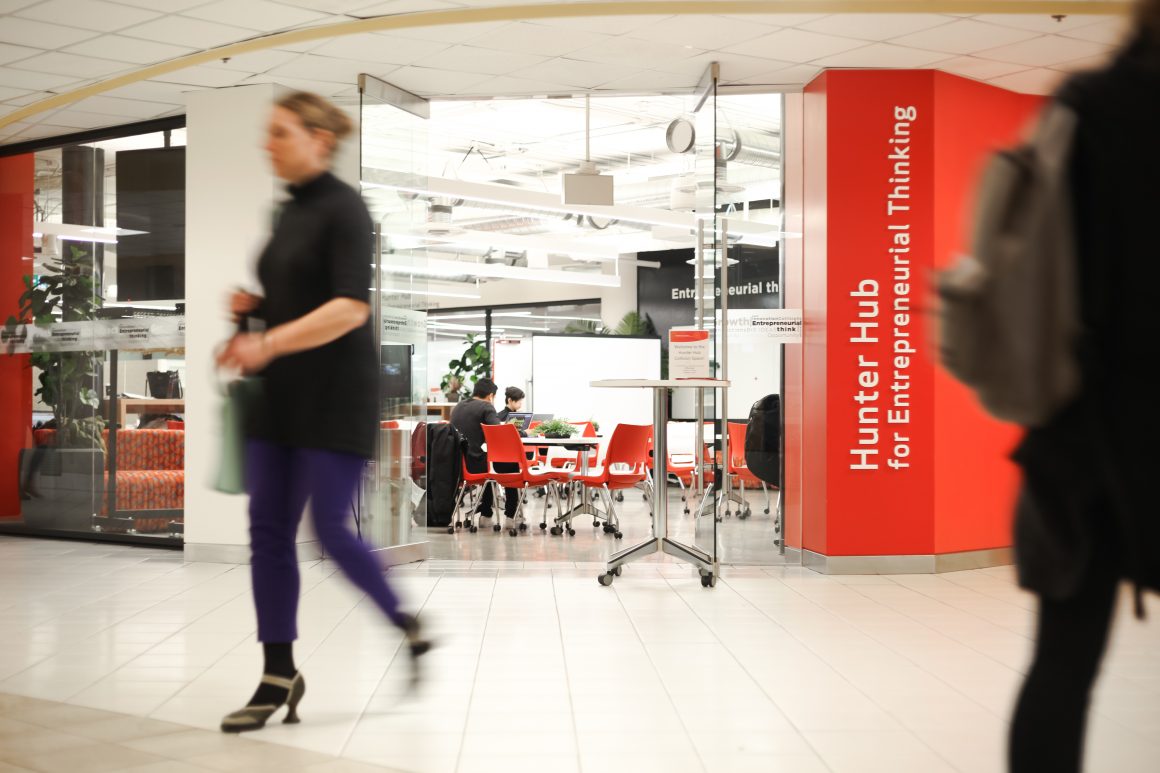
WELab Launchpad: Tackling entrepreneurial learning and personal development
By Mitali Pradhan, January 23 2019 —
For students interested in STEM business ideas and innovations, the WELab Launchpad is an amazing opportunity.
“You can think about Launchpad as a cross between a club, a program and a place where teams of people can work together to develop entrepreneurial ideas,” stated Alice de Koning, the Academic Director at the Hunter Hub for Entrepreneurial Thinking.
The pilot — a 9-week program — took applications until Jan. 17. De Koning credited the Dean of the Schulich School with initiating the idea of Launchpad. The idea began as a way to use the Makerspaces in the basement of engineering buildings to provide a space for teams to work on projects while on campus. Providing a locker, table and secure space for teams to store projects meant that more students would be able to keep working on projects while using campus resources in the Makerspaces.
In the long run, WELab Launchpad promotes taking an initiative on a project and evaluating one’s ideas. The main focus of the experience, rather than to build a business, is to develop skills and a personal awareness of what it means to be an entrepreneur.
“It’s more about personal development than it is about idea development,” stated de Koning.
The opportunities include meeting with mentors to get advice but also as a form of networking within the industry. Depending on each team’s project, they will be directed to different events and people to connect with.
At the end of the 9 weeks, one plan is to change pitch competitions to evaluate each idea in a Go No-Go Show. If teams think their idea at the end of the 9 weeks is feasible, they will present in the Go category. Otherwise, they will present in the No-Go Category regarding why their idea is not feasible. Both categories would have winners. This makes it so that it is not just an idea winning, but rather the team and the work they have put in. It also places emphasis on the work of talking to customers and searching the market for similar products to evaluate one’s own idea as a Go or No-Go.
“One of the things people forget in entrepreneurship is that we have to get used to failing. If we tie the person and idea too tightly and say that your idea was a winner now you are a winner, then we miss the point,” stated de Koning. “By doing it this way, we normalize that ideas can fail doesn’t mean you fail.”
Through the application, the Launchpad looked for motivated individuals interested in entrepreneurship and sought interdisciplinary teams. Individuals without a team were also encouraged to apply. The aim was to capture diversity in the room with a variety of different projects.
Each of the selected teams would have a mentor work with them once a month. The aim of this mentorship, in addition to helping in structuring and organizing the next steps was also to judge the ideas and work done. The mentorship aspect of the program hopes to push students to improve based on feedback on how the project is progressing.
The dream for the future is to have similar programs all over the campus. Each location on campus would have a different theme but still be open for students from all faculties. This could potentially be a program that runs each semester for all students. With the pilot just starting, it will provide an amazing opportunity for students on campus.
